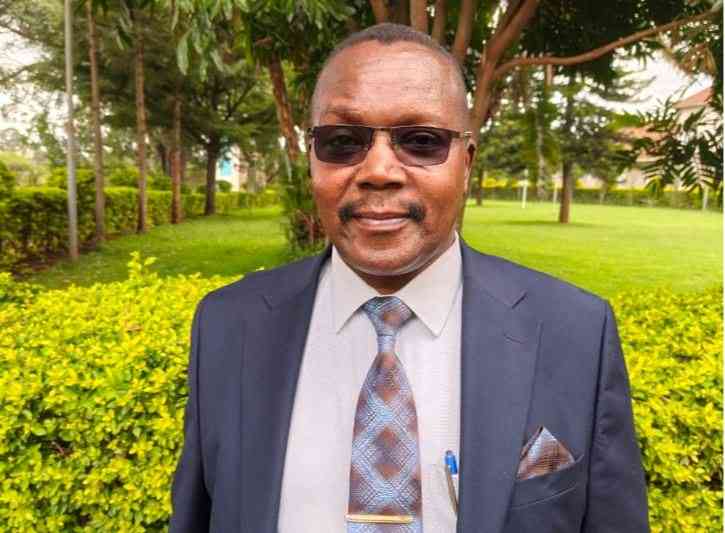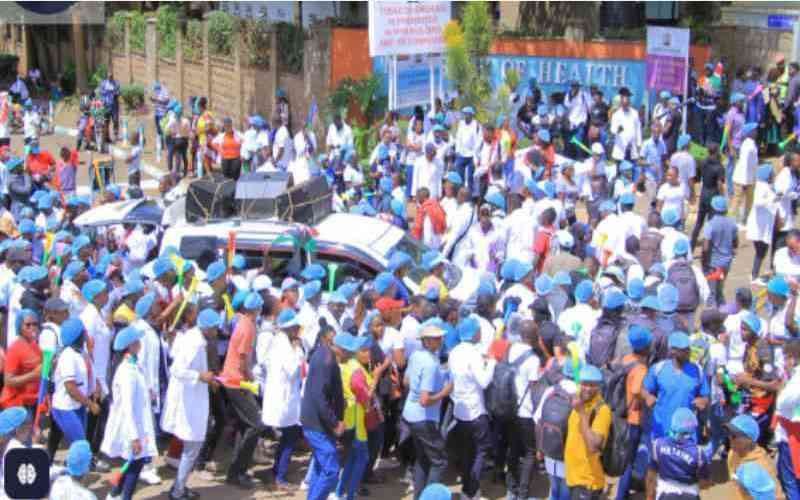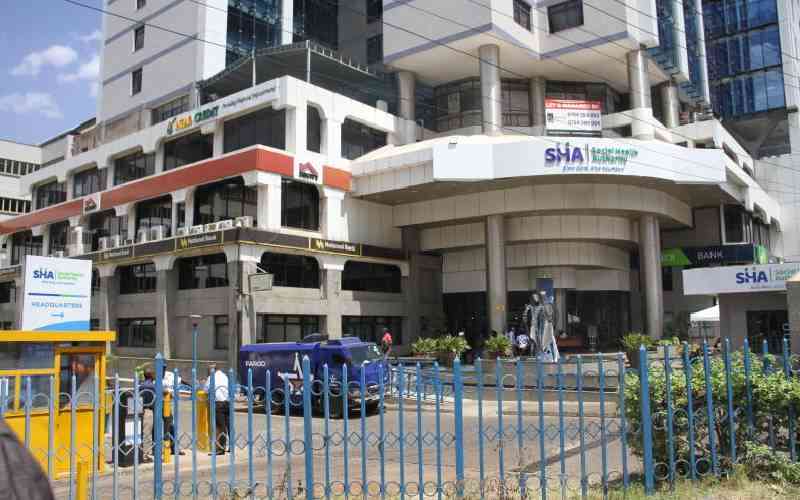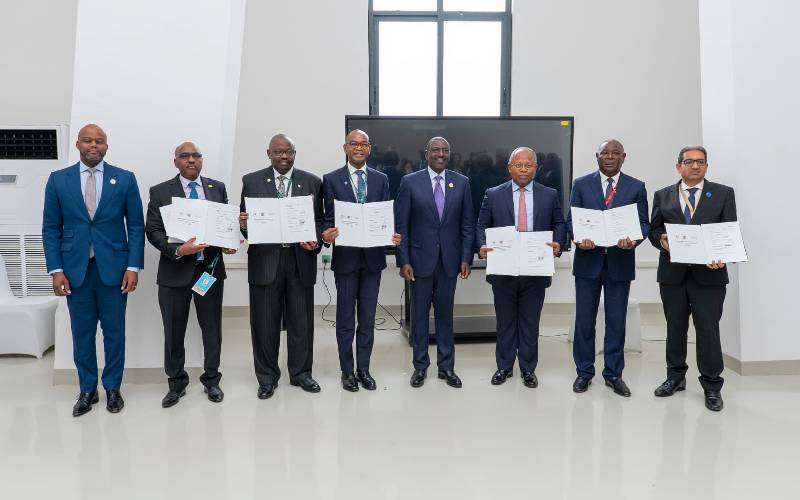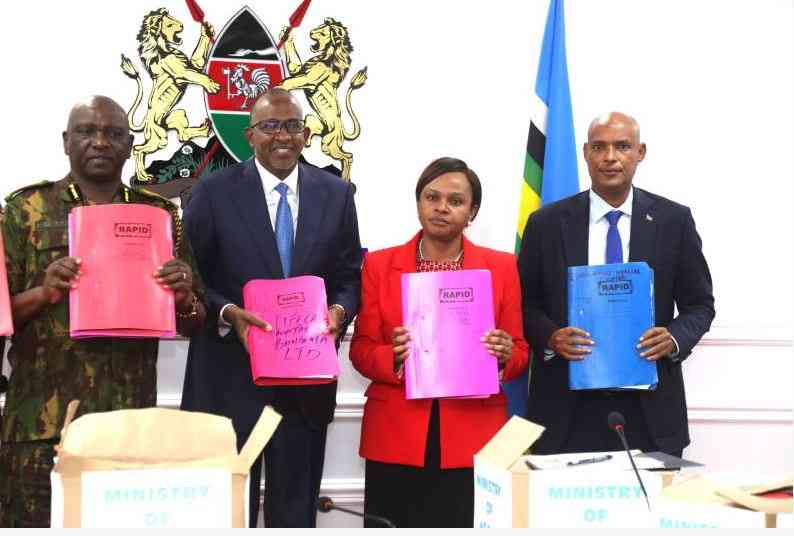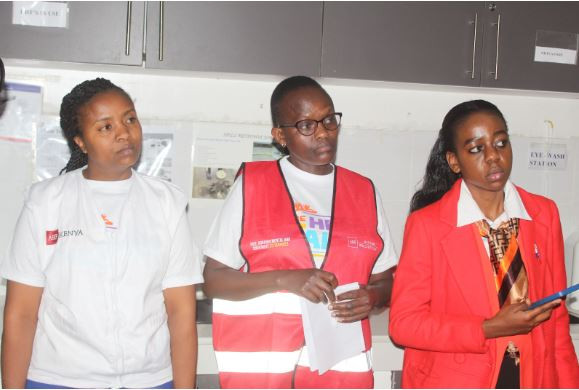
The Ministry of Health pledged to transfer funds for UHC staff salaries to the counties based on the approved scales by the Salaries and Remuneration Commission (SRC), with counties undertaking headcounts to improve transparency and accountability.
Among the most pressing concerns raised was the absorption of UHC staff.
Many county-employed healthcare workers have been operating in limbo—uncertain contracts, inconsistent pay, and unclear terms of employment.
Technology was another focal point of the discussion, with all sides agreeing that digitizing Kenya’s health system is no longer optional—it’s urgent.
To solve this, the Council of Governors, in collaboration with the Ministries of Health, ICT, and Energy, agreed to form a task force that will address electricity and connectivity gaps—essentials for the full digital rollout.
The Digital Health Agency (DHA) was tasked with accelerating the rollout of devices and digital tools to all public health facilities and providing governors with a detailed implementation roadmap.
Counties’ existing health systems, like AfyaKE, will be evaluated for inclusion in the national Health Information Exchange portal.
The Social Health Authority (SHA) committed to increasing allocations to the Emergency, Chronic, and Critical Illness Fund. These funds are lifelines for families battling costly long-term illnesses.
- It won't be business as usual, Duale warns non-compliant health facilities
- Dentists Council defends foreign doctors' licensing amid ethical concerns
- Kenya's healthcare inequality persists as self-care, local production gain momentum
- Win for doctors as 1,800 interns posted with Sh206,000 monthly pay
Keep Reading
Training and capacity building for health workers—from Level 2 to Level 5 facilities—was also prioritised.
The aim is to ensure that frontline staff fully understand SHA processes, products, and systems to improve service delivery.
This emerged during a meeting between Health Cabinet Secretary Aden Duale and governors who came together to address delayed salaries, outdated systems, and limited resources amongst health workers.
CS Duale reaffirmed the Ministry’s commitment to strengthening the country’s health systems. “We are focused on reforms that are people-centered. Our collaboration with counties is not just strategic—it is essential,” said CS Duale.
“We owe it to our people to get this right. Because at the heart of every reform is a Kenyan who needs care—and a health worker trying to give it.”
For months, the frontline service providers have been walking a delicate line to deliver life-saving services under Universal Health Coverage (UHC).
Nyeri Governor and CoG Vice-Chairperson Mutahi Kahiga said many counties still grapple with poor electricity supply and unreliable internet connectivity, making digital health record-keeping or remote diagnostics difficult.
“Imagine a doctor in a rural clinic trying to use an app to register a patient with no power or signal. That’s the reality in many of our counties,” he said.
The same sentiment was shared by Wajir Governor and Chair of the Council of Governors (CoG) Health Committee, Ahmed Abdullahi.
“This is not just about policy—it’s about people. People who are sick, people who need care, and the people we have entrusted to deliver that care,” said Abdullahi.
 The Standard Group Plc is a multi-media organization with investments in media
platforms spanning newspaper print
operations, television, radio broadcasting, digital and online services. The
Standard Group is recognized as a
leading multi-media house in Kenya with a key influence in matters of national
and international interest.
The Standard Group Plc is a multi-media organization with investments in media
platforms spanning newspaper print
operations, television, radio broadcasting, digital and online services. The
Standard Group is recognized as a
leading multi-media house in Kenya with a key influence in matters of national
and international interest.



